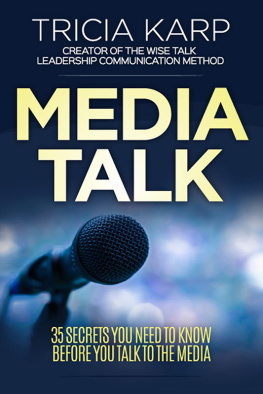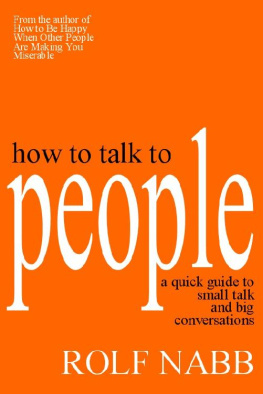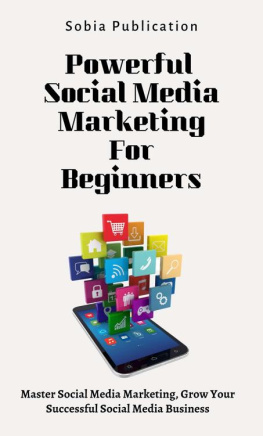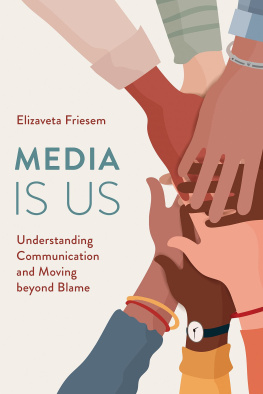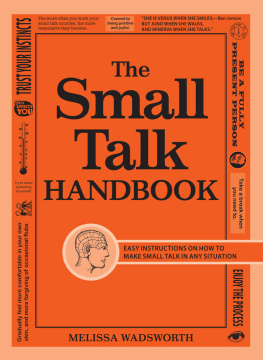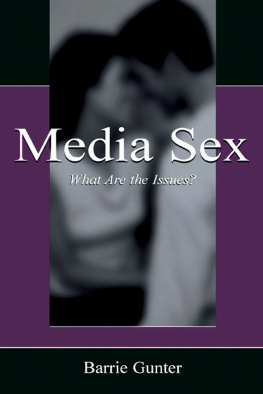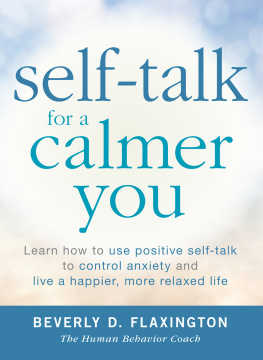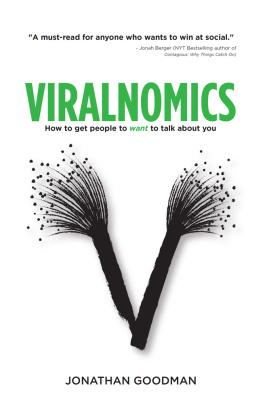Contents
Guide
TRICIA KARP
CREATOR OF THE WISE TALK
LEADERSHIP COMMUNICATION METHOD
MEDIA TALK
35 SECRETS YOU NEED TO KNOW BEFORE YOU TALK TO THE MEDIA
MEDIA TALK
Copyright Tricia Karp 2014
All rights reserved. This book or any portion thereof may not be reproduced or used in any manner whatsoever without the express written permission of the publisher.
Cover design: Matt Cumming, www.BookDesignHQ.com
Editor: Kris Kane
Cover photo: Victoria Berekmeri
Published by Wise Talk Press
Email:
Website: www.wisetalk.com.au
For my husband Ku, for your unwavering support and humour.
Tricia Karp has written the modern media handbook. Her advice and spirit, insight and depth make this book an essential resource.
~ Nuala Hafner, Media Personality
If youre looking for a media trainer, Tricia Karp is the gold standard. Warm and wise, savvy and practical, Media Talk is as much a guide to navigating the complex world of media as it is a lesson in leadership communication.
~ Kate Woodland, Author of Hiring For The Future
Sharp, insightful and packed with practical strategies, Media Talk explains precisely what it takes to win the media game. A must-read book written by an expert with insider knowledge, Tricia shows you how to handle the toughest media situations and come out on top.
~ Greg Cassar, Author of Lead Machine
Dont talk to the media before you read this book. Full of insider secrets from someone who knows the media inside out, Media Talk takes the stress out of high pressure situations and puts you in the drivers seat.
~ Mark Robinson, Author of Winning The Wealth Game
Leaders cant afford to stumble, stutter or say the wrong thing in front of the media. This book teaches you how to get it right by learning the crucial secrets only media insiders know. Dont talk to the media until youve read this book.
~ Judeth Wilson, Author of The Inside Secrets of Powerful Presenters Revealed and Training Works!
This isnt another book just filled with techniques for handling media interviews with aplomb, although it does that exceptionally well. The gift of Media Talk is its ability to show leaders how to communicate leadership in high-pressure, high-stakes situations. This book is a superb resource for any leader in the public eye.
~ Dr Sally J Rundle, Author of Values Grid: Compelling Leadership Values
This is not your typical book about what to say and what not to say to the media. It does offer solid advice and practical tools for navigating the evolving media landscape, including social media, but as importantly, it shows you how to communicate leadership in the most demanding situations. Media Talk is an inspiring read for any leader whos serious about using the largest audience to make the greatest impact and difference.
~ Dr Karen Nelson-Field, Author of Viral Marketing: The Science of Sharing
INTRODUCTION
F or over twenty years now, my profession has been performing in public, under pressureand guiding others to do the same. I want to help people to inspire and lead, especially in high-pressure, high-stakes situations. Its become my passion.
Over the length of my career, Ive worked in radio and television as a news and current affairs journalist, a commercial prime time television news presenter, a voice artist, news director, senior corporate communications adviser, entrepreneur, corporate trainer, executive coach, and workshop leader. In those roles Ive watched the most seasoned CEOs pull out every trick in the book to avoid being interviewed on camera. Ive worked with managing directors who took more of an interest in me than usualby asking lots of questions to try to distract me during training sessions. Ive observed leaders crumple under the pressure of a media conference and unintentionally speak words that had severe consequences. Ive trained people whose nerves, anxiety, and lack of confidence undermined their authority. Ive heard the stutters and shaky voices, and seen the red faces and folded arms and other body language that shouts, I dont want to be here, and, worse, even I dont believe what Im saying.
As a journalist, I interviewed all types of leaders, from prime ministers to multibillionaire entrepreneurs to CEOs, from the creators of social and political movements to leaders of new and developing schools of thought, authors, activists, rock stars and Olympic athletes. Somewhere along the way I became a leader too, running my own business and being the one out in front, being interviewed by television and radio stations, newspapers and bloggers, and invited to speak at conferences and on all sorts of other stages.
Ive sat on both sides of the camera and microphone, and have been frequently reminded what a tough gig it is to stare down the barrel of a TV camera and answer interview questions.
I started my journalism career at the age of twenty-one, at a commercial radio station. Back then, before the days of syndication, radio newsrooms were treated seriously and stations invested in their news services. We had half a dozen journalists more seasoned than I, and it was a vibrant and complex training ground for a young, wide-eyed reporter. Daunted by having to interview political leaders, and not really knowing what to ask, I gave plenty of free airtime to messages and stories that hadnt been appropriately prodded or poked. No wonder they always said Yes! to requests to be interviewed by me!
I didnt know it then, but it was also a fertile and compelling leadership training ground. Every day, I interviewed four or five people, and had to face the challenges of drawing my subjects out, of finding the right questions to ask. Every year, I was lucky to speak to a small handful who knew how to influence, inspire, and motivate with their words. I became fascinated by people with an ability to render a room silent when they walked in, before they even spoke, and then hold an audience in the palm of their hand. They were a rare breed, and possessed a power that not only intrigued me and made them memorable, but inspired loyalty and trust from others, often in the most trying of circumstances.
Ill never forget the impact that interviewing then Australian Prime Minister Paul Keating had upon me as a young journalist in the early 1990s. He had a charm and presence that captivated everyone in the room. With clear boundaries and a demeanour that made it plain he refused to suffer fools, he managed to speak in a way that ensured everyone listened. An imposing figure in his dark Zegna suit, he was still surprisingly warm and friendly, and exuded comfort even amid a room full of journalists. I was intrigued by Keatings powerful presence and seemingly effortless charisma. Id marvel about the experience as I walked away with my interview on my clunky old tape recorder to take back to the newsroom, and think long and hard about what made him such a powerful, effective speaker and so at ease in such a high pressure environment.
These days, the business world is becoming increasingly complex and challenging. Navigating complexities isnt about predicting the future or reducing risk. Its about building capacityin yourself, in your people, and in your organisation.
The business environment is volatile and uncertain. Yet people, countries, and economies are more deeply connected than ever. We live in an era where your message, speech or interview are beamed across the country, even the world, in a matter of mere seconds. The imperative to get it right is greater than ever, and the risks more devastating. Get it wrong, and you can count on your words reaching a growing and increasingly vocal and uncensored audience across various multimedia platforms. The stakes are rising; so, too, the pressure.

